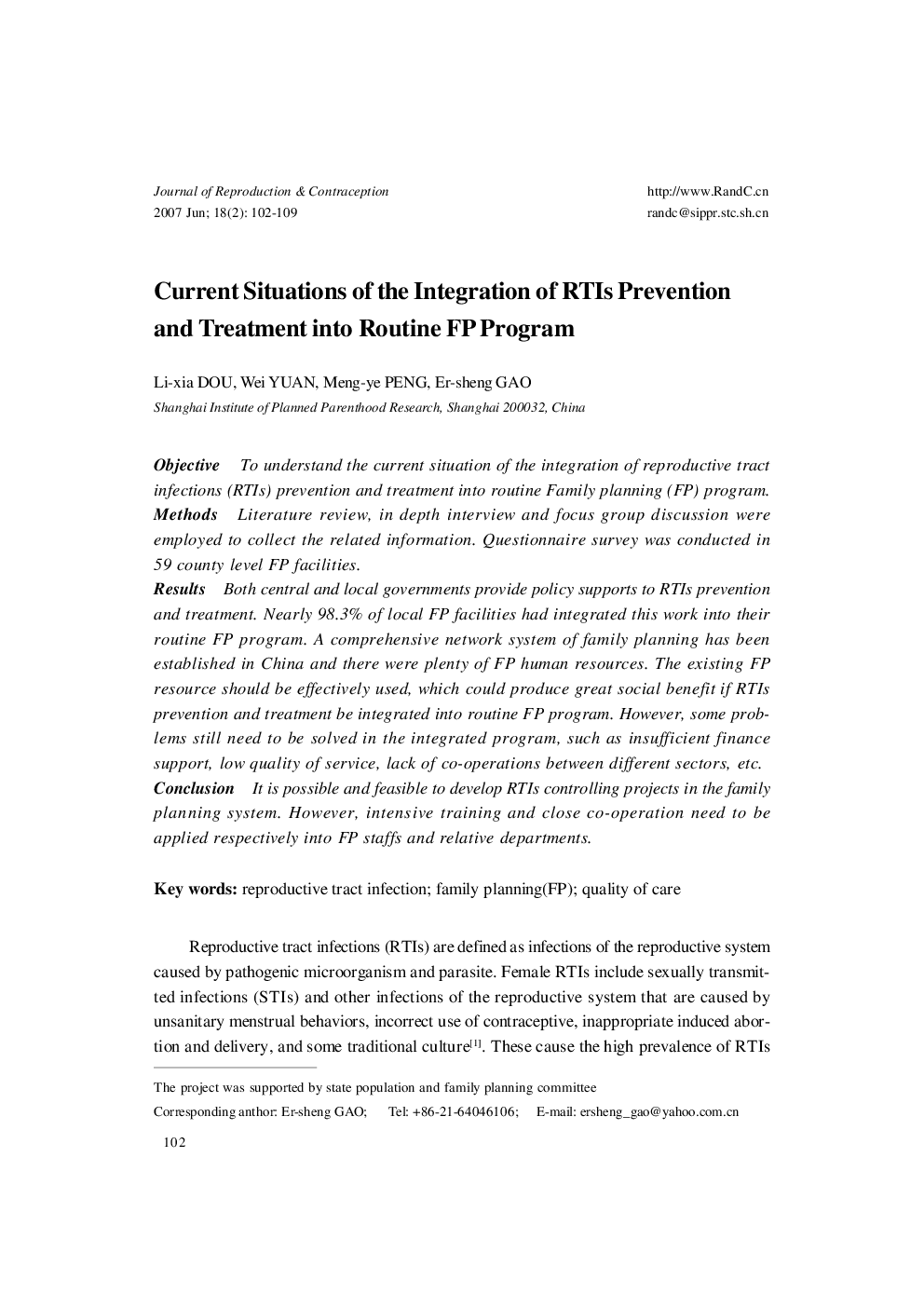| Article ID | Journal | Published Year | Pages | File Type |
|---|---|---|---|---|
| 3961100 | Journal of Reproduction and Contraception | 2007 | 8 Pages |
ObjectiveTo understand the current situation of the integration of reproductive tract infections (RTIs) prevention and treatment into routine Family planning (FP) program.MethodsLiterature review, in depth interview and focus group discussion were employed to collect the related information. Questionnaire survey was conducted in 59 county level FP facilities.ResultsBoth central and local governments provide policy supports to RTIs prevention and treatment. Nearly 98.3% of local FP facilities had integrated this work into their routine FP program. A comprehensive network system of family planning has been established in China and there were plenty of FP human resources. The existing FP resource should be effectively used, which could produce great social benefit if RTIs prevention and treatment be integrated into routine FP program. However, some problems still need to be solved in the integrated program, such as insufficient finance support, low quality of service, lack of co-operations between different sectors, etc.ConclusionIt is possible and feasible to develop RTIs controlling projects in the family planning system. However, intensive training and close co-operation need to be applied respectively into FP staffs and relative departments.
